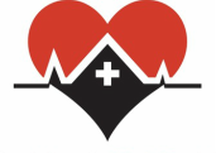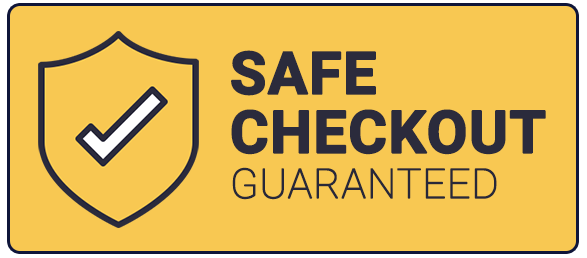MANAGING AN ALLERGIC REACTIONThe Centers for Disease Control and Prevention (CDC) reports that over 50 million Americans suffer from allergies each year. Allergies are caused by an overactive immune system. Various reactions to allergies can occur due to bee stings, spending time around house pets, increasing pollen in the air and spending more time outside, or simply consuming peanuts. However, no matter how severe the allergic reaction, it is critical to address the problem as quickly as possible.
The first step in handling an allergic reaction is identifying symptoms and understanding any predispositions that an individual may have towards certain allergens. With this information and within the First Aid classes we provide at Help-A-Heart CPR, we will provide you with everything you need to know to properly handle an allergic reaction. Gain the necessary knowledge to stay safe in the face of allergies with our information below and gain the experience to turn your knowledge into action by enrolling in our Basic First Aid course. WHAT CAUSES ALLERGIC REACTIONS? The allergic reaction is synergy of an allergen and the body’s response to it. There are three primary types of allergies. The first are ingested allergies, which occur only when an allergen is ingested orally or intravenously. A few common allergens in this category include peanuts, eggs, gluten, certain types of fruit, and some medications, including penicillin. The second are contact allergies, which occur when an allergen comes into contact with the skin and causes swelling or irritation. A few common allergens in this category include soaps, detergents, hair dye, and latex. The final and most widespread type of allergies are inhaled allergies, which occur when an individual breathes in an allergen. Common allergens in this category include pollen and pet dander. WHAT IS AN ALLERGIC REACTION? The allergic reaction or the “overreaction” is essentially an overproduction of proteins called Immunoglobulin E (IgE) antibodies, which the body uses to try to suppress the allergen. When combined with the allergen itself, these antibodies then create histamine. Histamine is the substance responsible for the wide range of symptoms that can occur in body when an allergic reaction occurs. These symptoms include: A. Itching on the affected area or over the entire body B. A red or raised rash on the affected area or over the entire body C. Hives (large, pink bumps or swollen areas) D. Sneezing and watery eyes E. A runny nose F. Swelling in the mouth or throat G.Difficulty breathing or rapid breaths H. Nausea or diarrhea I. Drowsiness In certain situations, multiple sites in the body can be effected at once. This is known as anaphylaxis and can result in anaphylactic shock if the individual is not treated immediately. Individuals experiencing anaphylactic shock may also become dizzy or lose consciousness. The symptoms of anaphylaxis may often begin 5 to 30 minutes after contact with an allergen or as long as an hour. Some individuals with known allergies, asthma, or a family history of anaphylaxis are at an increased risk of anaphylaxis. In addition, those individuals who may have previously experienced anaphylaxis also have a higher chance of anaphylactic reaction. If you suspect an anaphylactic reaction, address it quickly with the medication prescribed by your physician (usually Epinephrine and/or Benadryl) and an immediate visit to a doctor’s office. GET PREPARED: GET CERTIFIED Do you to learn more about allergies and what to do when someone experiences an allergic reaction? Ready to learn the skills necessary to address allergic reactions and other bodily emergencies? Get prepared and get certified with Help-A-Heart CPR's Basic First Aid course. Led by the industry’s top instructors, our Basic First Aid course will give you everything you need to know to provide first aid to allergic reactions, injuries, and other trauma. Click the link above for more information about this course and other American Heart Association CPR classes. Explore our website to learn more about the many emergency response courses we offer including CPR certification online, and enroll with our team at Help-A-Heart CPR today!
Comments
|
AuthorDr. Tracy A. Jones is the CEO of Help-A-Heart CPR, LLC and an American Heart Association, ASHI, and American Red Cross Master Program Trainer, Instructor, & AHA Faculty Member located in San Antonio, Texas. Archives
June 2024
Categories |
Help-A-Heart CPR, LLC | 1747 Citadell Plaza Suite 101 | San Antonio, Texas 78209 | (210) 380-5344 | [email protected]
Copyright © Help-A-Heart CPR, LLC 2024
100% Certification Acceptance
We promise your employer, school, or agency will accept the certification card we issue to you. If there is a question of acceptance or validity, simply send us an email at [email protected] with full details. We will reach out to the individual/entity and provide accreditation information. If still there’s a question, we will provide you with a full refund of your class fee. It’s that simple.
We promise your employer, school, or agency will accept the certification card we issue to you. If there is a question of acceptance or validity, simply send us an email at [email protected] with full details. We will reach out to the individual/entity and provide accreditation information. If still there’s a question, we will provide you with a full refund of your class fee. It’s that simple.
|
Communities Served
ALABAMA: Birmingham
ARKANSAS: Fayetteville, Hot Springs, Jonesboro, Little Rock NEW MEXICO: Albuquerque TENNESSEE: Knoxville TEXAS: Amarillo, Arlington, Austin, Bandera, Bastrop, Boerne, Brownsville, Comfort, Converse, Corpus Christi, Dallas/Ft. Worth, Del Rio, Dripping Springs, El Paso, Floresville, Fredericksburg, Georgetown, Harlingen, Houston, Junction, Katy, Kerrville, Kingsville, Kingwood, Laredo, Lubbock, Lufkin, McAllen, Midland, New Braunfels, Odessa, Pleasanton, Round Rock, San Angelo, San Marcos, Schertz, Seguin, Taylor, Temple, Texarkana, Tyler, Universal City, Victoria, Waco, The Woodlands |
Why Choose Help-A-Heart CPR?
1. Flexible Scheduling
2. On and Off Location Training Available 3. Casual, Fun Atmosphere 4. Best Price Guarantee 5. All Instructors are AHA and/or ARC certified 6. 5 Star Google Reviews 7. Blended Learning (Online & Skills Check) Available 8. Meets OSHA & College CPR Requirements 9. Get Certified Within 3-4 Hours 10.Certification Is Good For Two Years 11. Official AHA/ARC/ASHI Training Site 12. High Quality Safety Training! |








